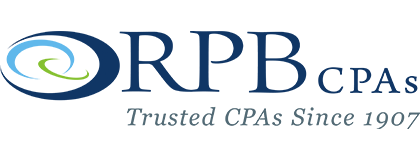A large majority of the future workforce will attend college at some point. Unfortunately, a college education is far from cheap. Many students attending college are taking on debt or, if they are lucky, finding scholarships to help defray the ever-increasing costs.
Thanks to our tax code, most taxpayers are afforded some small deductions for those costs in the way of tuition deduction credit ($2,500 annual maximum credit) and student loan interest deduction ($2,500 annual maximum deduction). For most people, that is where the focus stops, but not for the Internal Revenue Service.
The receipt of scholarship funds could be taxable. Even worse, they could be taxable at the parents’ tax rate. Currently the IRS Code allows for scholarships that are for “tuition and fees required for attendance and other expenses required for courses” to be excluded from income tax. However, scholarships and grants that also help to defray other costs (such as room and board or non-required expenses) are subject to tax. To add insult to injury, the IRS code currently does not treat scholarships as earned income, which means they fall under the “kiddie tax” rules and end up being taxed at the parents’ (usually) higher tax rate. For some, that could mean that the $2,000 scholarship they received toward room and board will cost them nearly $800 in Federal Income Taxes!
Scholarships aren’t the only trap. Student loans often have consequences down the road. As discussed earlier, student loan interest is deductible from income; however, as students graduate and begin working the deduction may be lost as it is phased out for higher income earners – often those with larger student loans. Also, since it is limited to $2,500 per year, it may make sense to start paying down debt while still in school. Moving debt to another type of tax deductible loan may make tax sense, but be careful as it may create other risks and liabilities you don’t have with a student loan.
Other student loan concerns do not relate to taxes but still should be on everyone’s radar:
- Private Student Loans (PSL) can have lower interest rates than Federal Student Loans (FSL), but they often have more restrictions.
- Death of a PSL signer or co-signer during the loan often makes the loan automatically due.
- Unsubsidized student loans accrue interest while the student completes his or her education, whereas subsidized student loans do not accrue interest until graduation.
- Loan write-offs by lenders often mean the amount is added to your taxable income; you are taxed on the amount of debt as though you earned money and paid off the loan.
For some, sending your children to college is a wonderful way to set them up for success in the future, but be aware of potential tax and financial consequences. Reilly, Penner & Benton can help you navigate the tax aspects of all of your decisions. Call us to learn more or to make an appointment.
Article by: Brad Voght, C.P.A.



